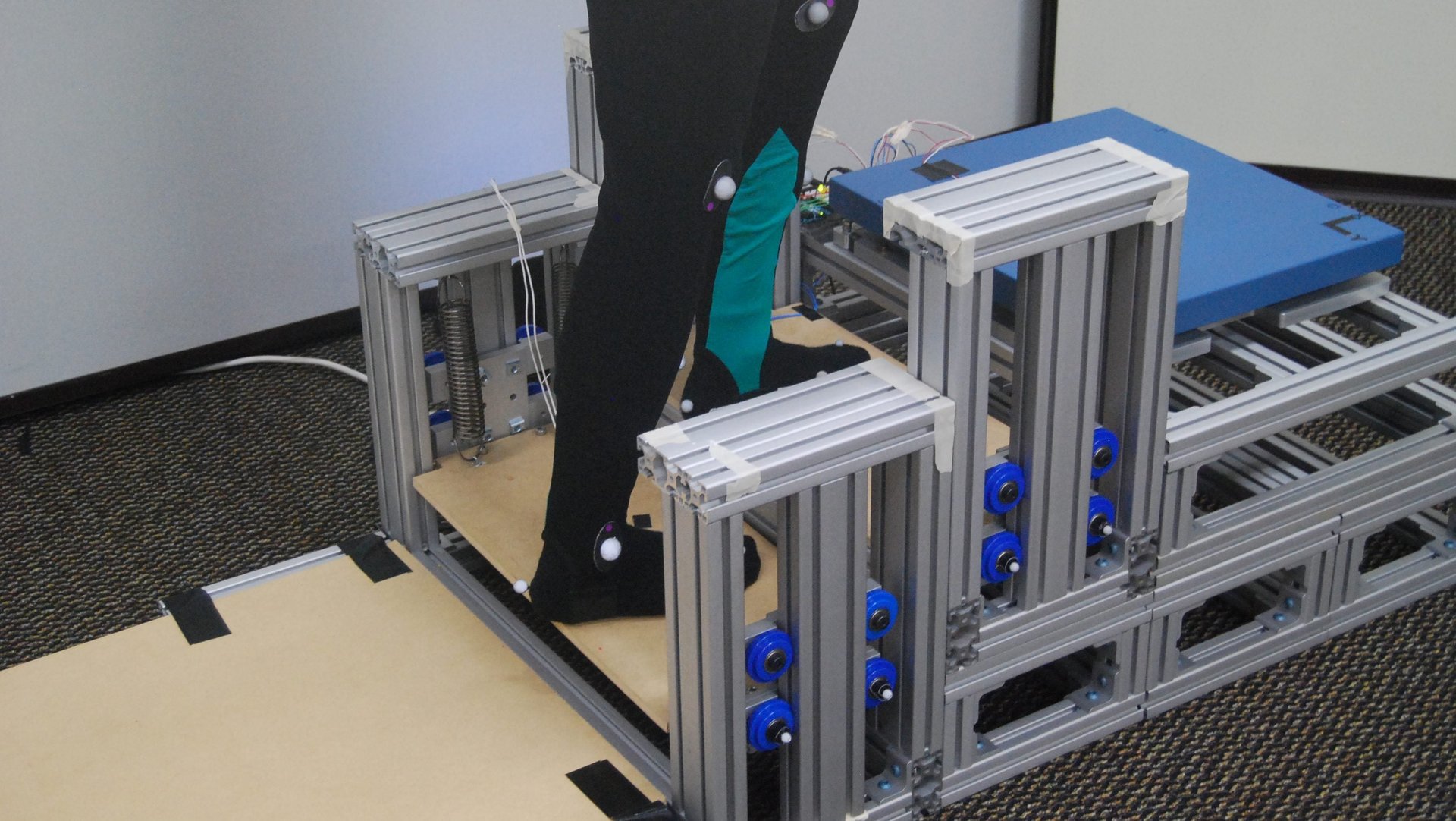Researchers are developing stairs to help mobility-impaired people climb them
When Karen Liu, a computer scientist at Georgia Tech in Atlanta, noticed her 72-year-old mother having trouble climbing the stairs, she wondered whether an engineering solution could help.


When Karen Liu, a computer scientist at Georgia Tech in Atlanta, noticed her 72-year-old mother having trouble climbing the stairs, she wondered whether an engineering solution could help.
Initially, she found a lightweight ankle exoskeleton (paywall) designed by an associate professor at Carnegie Mellon University that used a unique energy-recycling concept. On each step’s downstroke, the exoskeleton captures energy created by the user; on the upstroke, it reuses that energy to propel the user forward. But Liu realized that her mother probably wouldn’t want to wear equipment just to go up and down the stairs. Instead, she began brainstorming a way to capture the same energy-recycling mechanism directly in the stairs.
Studies show that your knee has to exert three times more energy when climbing or descending the stairs than when walking on flat ground. And in one particular study of older abled adults, almost half had difficulty climbing the stairs; more than a quarter had difficulty coming down. Mobility-impaired individuals encounter similar challenges.
To bring her idea to fruition, Liu collaborated with Lena Ting, a professor of biomedical engineering and rehabilitation medicine at Emory University, and Yun Seong Song, an assistant professor of mechanical engineering at the Missouri University of Science and Technology. This week, they published their first round of results: Their prototype successfully decreased leg exertion by 17% and knee exertion by 38% during ascent, and leg exertion by 22% and ankle exertion by 26% during descent.
The stairs work like this: Every step is supported by a system of springs. When a user goes down the stairs, the springs compress and are held down by clamps. Sensors on the stairs detect which step a user is on. When a user goes back up the stairs, the springs release, giving the user’s leg an extra boost. Additionally, only the sensors require electricity, which means the entire system can be powered by a small battery. An existing stairway can be retrofitted easily.
Just as Liu envisioned, “you don’t have to personally carry anything” for the system to work, said Song, who helped build the current prototype.
Only healthy young adults have tested the prototype so far, but the researchers plan to conduct further tests with mobility-impaired users after refining their system. They also hope to eventually commercialize the product for in-home use. “That’s an ambitious goal,” said Song, “because there are so many steps to take in between. But if it does happen, I’ll be very happy because it’s a simple, practical, energy-efficient technology that will make an impact [on] society.”